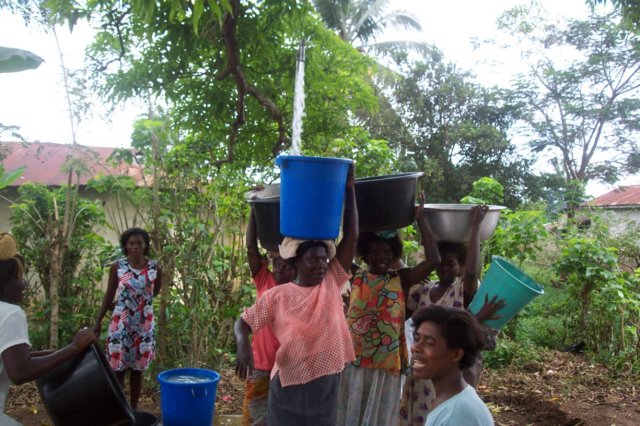By Alhassan A. Bala
Part of what Nigerians expected when the country got her independence on 1st October, 1960 was getting freedom and a better life, most especially in the provision of infrastructure and basic amenities like clean water, electricity, standard health facilities, to name a few.
The leaders in the First Republic were overthrown and some killed by military officers in a coup d’etat, and having assumed the leadership not via the universal suffrage, Nigerians couldn’t demand for many things.
The Second, Third and even the Fourth Republic leaders campaigned for the provision of water, electricity among many other basic amenities and infrastructure before their respective elections.
Nigeria is a party to the United Nations Declaration of the Right to Water, which entitles everyone living in Nigeria to have a sufficient, affordable, safe and portable water for personaland domestic uses.
A survey conducted by Nigeria’s Bureau of Statistics and UNICEF in 2019 shows millions of households in Nigeria do not have access to clean water sources. While the supply of clean water in Nigeria has improved recently, 3 in 10 people still lack access to water.
Nigeria is so rich in water resources and reservoirs that some states got their names from rivers.
More importantly, as consumable water is found in nearly every part of the country, there is also plenty stored in the ground.
Report says Nigeria has 215 cubic metres a year of available surface water, which is a lot higher than many African countries, particularly those in the southern and northern regions of the continent.
With all this natural blessing, many people who live in countries that do not have the reservoirs of water as Nigeria would imagine that Nigerians have plenty of water to drink.
But this isn’t the case. In fact, a report suggested that only 19% of Nigeria’s population have access to safe drinking water.
Although, 67% of people have basic water supply, access is uneven. In cities, 82% of people have basic supply. In rural areas, only 54% do.
The NBS and UNICEF report also says wealth also distorts access. About 80% of wealthy Nigerians have access to at least a basic water supply, in comparison to only 48% of poor Nigerians.
This is not unconnected with the fact that most of the rich houses have boreholes, dug to avoid depending on water boards.
It is indeed very important to understand the reason why the number of water vendors in town and cities are increasing by the day, as the population have no option than to patronise them to access water they can either drink or use for other domestic needs.
For those who have the financial wherewithal now have to rely on the producers of sachet water popularly known as “pure water” with the fantacy that they are drinking clean water.
For the rich, it is either bottled water or dispenser, with stated process of hygienic treatment from the companies.
Still, the competition among those companies is currently at its peak as they keep increasing by the day.
Be that as it may, a question begs for an answer: is this how we will continue, leaving citizens at the mercy of water vendors and sachet water producers who may not care about the hygiene and health implications of people as they are after getting money?
Those in authority from federal, states and local governments should understand that water is life, hence the need to also provide clean water, which will definitely help in reducing some tendencies of outbreak of so many communicable diseases, that claim lives of many helpless citizens.
Alhassan A. Bala is an Abuja-based broadcast journalist

Call:
Sandra - 07069148333
Pauline - 08174374150
Scholastica - 09060678434













